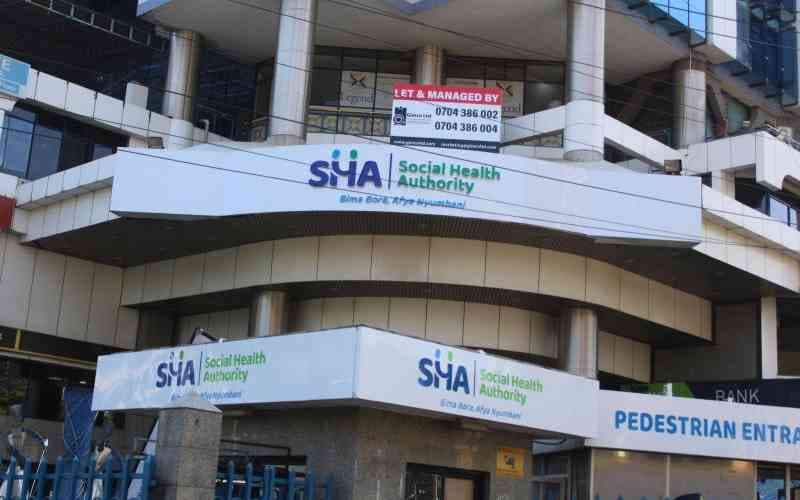We're loading the full news article for you. This includes the article content, images, author information, and related articles.
Kenya’s private hospitals have stopped serving patients under the Social Health Authority programme, citing delayed payments and a faulty digital system, forcing beneficiaries to pay cash while talks with the government continue.

Nairobi, Kenya – Kenya’s ambitious universal health coverage programme has suffered a major setback after private hospitals across the country suspended services under the Social Health Authority (SHA), citing months of unpaid claims and persistent failures in the scheme’s digital infrastructure.
In a strongly worded notice issued on Monday, the Rural and Urban Private Hospitals Association of Kenya (RUPHA) said all patients relying on the SHA scheme would now be required to pay cash for treatment. The association explained that the drastic move was necessary to keep hospitals running, safeguard patient care, and prevent shortages of essential drugs and medical supplies.
RUPHA officials revealed that the Ministry of Health had delayed payments for services already rendered, leaving hospitals cash-strapped and unable to meet operational costs.
“Our priority is to keep hospitals operational and protect our patients. But the government has left us with no choice. We cannot continue offering services without reimbursement,” the notice stated.
Hospital administrators warned that the non-payment crisis was jeopardising both the financial viability of private health facilities and access to healthcare for thousands of Kenyans, particularly those from low-income backgrounds who rely on the public insurance scheme.
The association also criticised SHA’s digital claims platform, saying it lacks proper fraud-detection capabilities and has failed to guarantee quality assurance in medical services.
Billions of shillings allocated for quality management, hospital accreditation, and fraud prevention remain unimplemented, leaving healthcare providers exposed to administrative chaos and financial risk.
“Digital efficiency was supposed to be the backbone of this new system, yet it has become its weakest link,” said one hospital director in Nairobi, warning that continued system failures could erode confidence in the entire universal health coverage agenda.
The suspension has already sparked concern among patients who worry that paying out-of-pocket will deter many from seeking treatment. Health rights groups argue that the stalemate could reverse gains made in expanding access to affordable healthcare.
“For ordinary Kenyans, this means longer delays, higher costs, and possible neglect of vulnerable patients. Universal health coverage cannot succeed if private hospitals—the backbone of Kenya’s healthcare system—pull out,” said public health expert Dr. Anne Njoroge.
The Ministry of Health responded by acknowledging the complaints and pledging to engage RUPHA to resolve the crisis. However, officials did not give a clear timeline for settling outstanding bills or upgrading the troubled digital platform.
Health economists warn that unless the government addresses both financial reimbursements and technological inefficiencies, the credibility of the SHA and the wider universal health coverage plan could be undermined ahead of its full rollout in 2026.
The standoff comes barely a year after SHA replaced the controversial National Health Insurance Fund (NHIF) as part of President William Ruto’s pledge to achieve universal health coverage. The programme was designed to pool resources, prevent catastrophic health costs for families, and ensure equitable access to medical care.
But with private hospitals now suspending participation, experts say the government risks losing critical partners who provide more than 50 percent of healthcare services nationwide.
RUPHA has demanded:
Immediate payment of outstanding claims
A fully functional, fraud-proof digital claims system
Transparent allocation of funds for quality assurance and hospital accreditation
Unless these conditions are met, the association says cash payments will remain in force, leaving millions of Kenyans to shoulder medical costs that the universal health coverage scheme was designed to eliminate.
Keep the conversation in one place—threads here stay linked to the story and in the forums.
Sign in to start a discussion
Start a conversation about this story and keep it linked here.
Other hot threads
E-sports and Gaming Community in Kenya
Active 9 months ago
The Role of Technology in Modern Agriculture (AgriTech)
Active 9 months ago
Popular Recreational Activities Across Counties
Active 9 months ago
Investing in Youth Sports Development Programs
Active 9 months ago